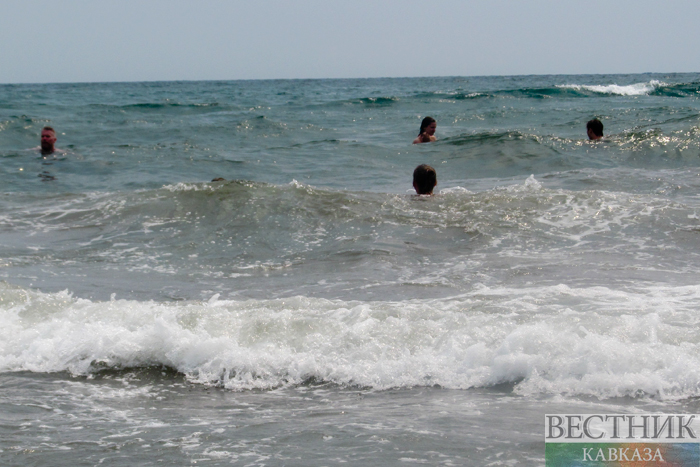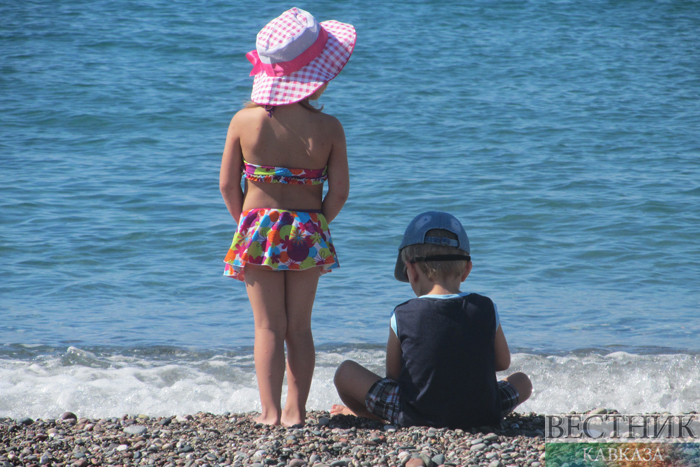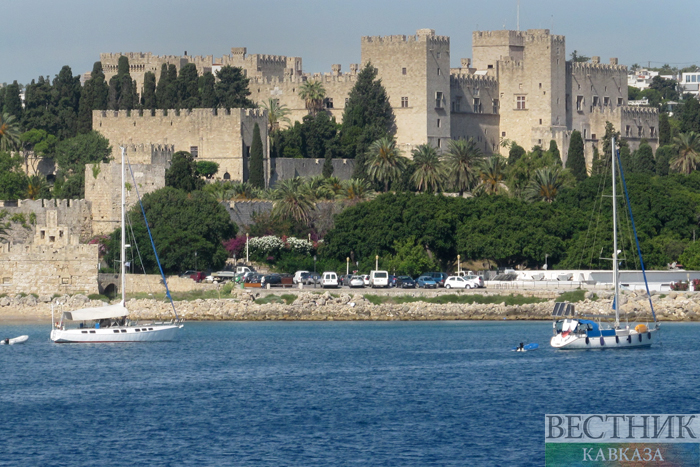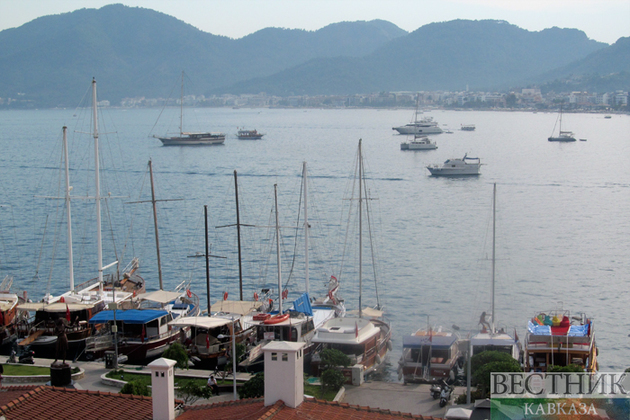Culture and Tourism Minister Mehmet Nuri Ersoy announced on Friday that the number of Turkey’s beaches with Blue Flag status has reached 531. Ersoy said in a written statement that Turkey retained its third spot in the world in the number of Blue Flag beaches after Spain and Greece, two other countries littoral to the Mediterranean Sea where the majority of such beaches are located, Daily Sabah writes.
Blue Flags are the symbol of venues fulfilling clean beach and marina criteria put forth by the Denmark-based Foundation for Environmental Education (FEE). Turkey aims to surpass the others in 2023, the centenary of the Republic of Turkey, Ersoy said. This year’s new inclusions for Turkey’s pristine beaches are five public beaches in Antalya and another in Muğla, two popular vacation destinations visited by thousands of local and foreign tourists every year. Overall, Turkey accumulated 13 more Blue Flags this year. Blue-flagged sites this year also include 24 marinas, 15 tourism boats and five private yachts.
Along with the renewal of Blue Flag certificates, some beaches won the prestigious designation for the first time this year, like Inciraltı beach at Lake Iznik in the northwestern province of Bursa. Antalya has the highest number of Blue Flag beaches at 229, while Muğla has 111. Mersin, another Mediterranean province, now has 11 such beaches, while Kırklareli and Sakarya in the northwest added one more to their existing Blue Flag beaches. Other beaches cover vast geography from Izmir in the west to Van in easternmost Turkey, as well as beaches on the shores of the Black Sea, in Ordu, Bartın and Samsun.

Some are privately owned, while others are public beaches, operated by different public agencies. The Culture and Tourism Ministry said the beaches it operated in Antalya’s Lara, Manavgat, Beldibi and Çamyuva and Içmeler neighborhood in Muğla’s Marmaris district earned Blue Flag status this year.
Beaches, marinas and tourism boats have to fulfill a myriad of criteria to achieve the coveted status, under the guidance of the nonprofit FEE. The program to grant the status to beaches was launched in France in the 1980s and spread across Europe, before it started including non-European countries as well in 2001.
By assigning Blue Flags, the foundation seeks to promote sustainable development in freshwater and marine areas, through criteria in categories including water quality, environmental management, environmental education and safety. For host countries, it also means a boost for tourism revenues as cleaner beaches with improved features bring in more tourists, especially in areas less popular among foreign tourists.

For environmental education criteria, the FEE requires beaches to provide environmental education activities to beachgoers and prominently display information about water quality, as well as a prominent display of rules for the use of the beach and surrounding areas.
For water quality criteria, beaches are required to comply with standards for frequency and the amount of water quality sampling and meet the standards and requirements. Most significantly, no industrial waste or wastewater from sewage treatment plants should affect the beach, and all beaches should be free of harmful bacteria.

The beaches are also required to be kept clean at all times, while algae or natural debris are required to be left intact. Waste disposal bins and containers are required to be provided sufficiently for beachgoers and recyclable waste containers should be readily available. In terms of safety, beaches are required to keep an adequate number of lifeguards and lifesaving equipment, along with emergency plans to cope with pollution risks.
Professor Abdülkadir Ateş, head of the Foundation for Environmental Education in Turkey (TÜRÇEV), which awards the flag on behalf of the FEE in Turkey, said in a statement that the COVID-19 pandemic affected tourism, but the environmental state of beaches was among the "rare things to be affected in a good way" from the pandemic. "The Blue Flag plays an important role in the protection of the environment and public health. We have faith that the Blue Flag awards will help people's tourism preferences in this time of normalization. For the international tourism sector, it is a sign of safety (in the pandemic era) where conditions of the environment, health and hygiene were deemed most crucial, as it contains a large number of criteria, from microbiological analysis of seawater to proper cleaning of beaches, safety and environmental management. These criteria will only add to other public health measures imposed during the pandemic," he said.






